Journalists denounce Associated Press for firing news associate over posts critical of Israel
More than 100 journalists at the Associated Press have decried the news agency's decision to fire a young female reporter over her criticism of the Israeli regime and support for the people of Palestine.
In a letter to the news agency, the journalists said the decision to fire Emily Wilder over social media posts critical of Israel puts the agency's credibility into question.
Signed by over130 journalists as of Monday afternoon, the letter continues to be circulated in GoogleDocs, with more signatures being added.
They voiced particular concern over the fact that Wilder, a Jewish American, was sacked after a right-wing campaign began digging up activism posts she had made during her time at university.
Wilder's colleagues said they were now worried “about the ramifications of this decision for newsroom morale and AP's credibility.”
They also strongly denounced the agency for the way it managed the entire episode.
“We strongly disapprove of the way the AP has handled the firing of Emily Wilder and its days-long silence internally,” the letter reads.
“We demand more clarity from the company about why Wilder was fired. It remains unclear - to Wilder herself as well as staff at large - how she violated the social media policy while employed by the AP," they said.
This week, Israeli media outlets published stories about Wilder, highlighting her past criticism on social media of the Israeli regime and of Zionists, including Sheldon Adelson – the dead billionaire and mega financer of the Republican Party.
Now, the group of concerned journalists fear the AP has just given bad faith actors a tool to discredit more of their colleagues.
“We need to know that the AP would stand behind and provide resources to journalists who are the subject of smear campaigns and online harassment,” they said.
“As journalists who cover contentious subjects, we are often the target of people unhappy with scrutiny. What happens when they orchestrate a smear campaign targeting another one of us? Interest groups are celebrating their victory and turning their sights on more AP journalists.”
“They have routinely made journalists’ identities subject to attack. Once we decide to play this game on the terms of those acting in bad faith, we can’t win,” they continued.
Lauren Easton, global director of media relations and corporate communications at AP, said that Wilder had been fired so that “the comments of one person cannot create dangerous conditions for our journalists covering the story.” But the AP journalists warned that Wilder's firing could have the opposite effect.
“This episode has caused the public to question the credibility of our reporting on the Israeli-Palestinian conflict, which does a great disservice to our courageous journalists in Gaza - who have already greatly suffered this month - and in Israel,” the journalists wrote.
“The amount of recrimination the AP has been subjected to online and in the news media also damages our reputation with our sources and audience on all subjects. The lack of clarity on the violations of the social media policy has made AP journalists afraid to engage on social media - often critical to our jobs - in any capacity,” they stressed.
Wilder, a Stanford University graduate, said in a statement issued on Saturday that she will not be intimidated into silence and will continue to support Palestine.
She also gave a full account of how and why she was laid off by The Associated Press following “a smear campaign” launched against her by “the Stanford College Republicans.”
“I am one victim to the asymmetrical enforcement of rules around objectivity and social media that has censored so many journalists - particularly Palestinian journalists and other journalists of color - before me.”
My statement on my termination from The Associated Press. pic.twitter.com/kf4NCkDJXx
— emily wilder (@vv1lder) May 22, 2021
The development came as the Israeli regime killed at least 248 Palestinians, including 66 children, in the besieged Gaza Strip during a 12-day war against the impoverished enclave. More than 1,900 people were also wounded as a result of the brutal aggression, which began on May 10.
Gaza’s resistance groups, including Hamas and the Islamic Jihad, responded to the aggression by launching more than 4,000 rockets towards the Israeli-occupied areas.
The projectiles swept the entire expanse of the territories, many flying as far as Tel Aviv, the holy occupied city of al-Quds, and even the northern-lying cities of Haifa and Nazareth.
The Israeli regime finally gave in to a ceasefire on Friday, incapable of stopping the resistance front’s rocket avalanche.
American warplane downed after Yemeni attacks 'baffled' US air defense: Ansarullah
VIDEO | Yemenis praise the military for its successful operations against Israel
VIDEO | Israel continues to bomb Gaza homes
VIDEO | An insider's view of the country: Meybod City in Yazd
‘All wars have rules. All of those rules have been broken’ by Israel
VIDEO | Report flags India’s violation of rights of Rohingya detainees
Turkey's foreign minister meets Syria's de facto leader in Damascus
VIDEO | US Syria plots





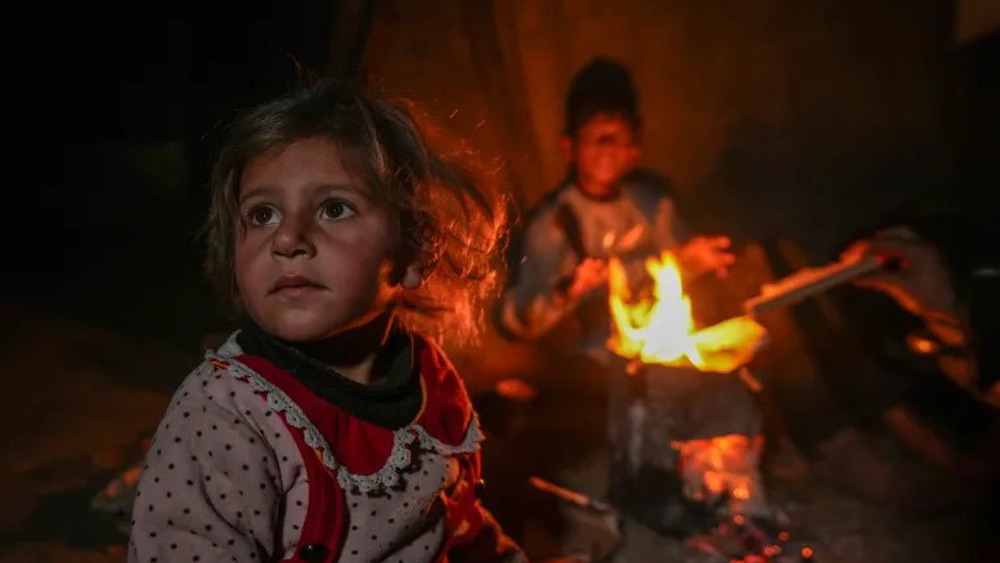
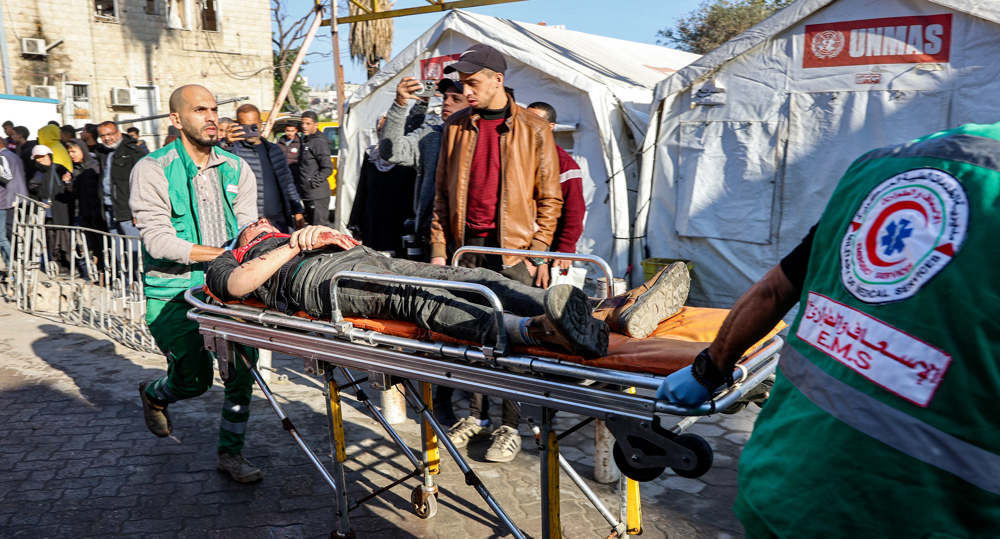



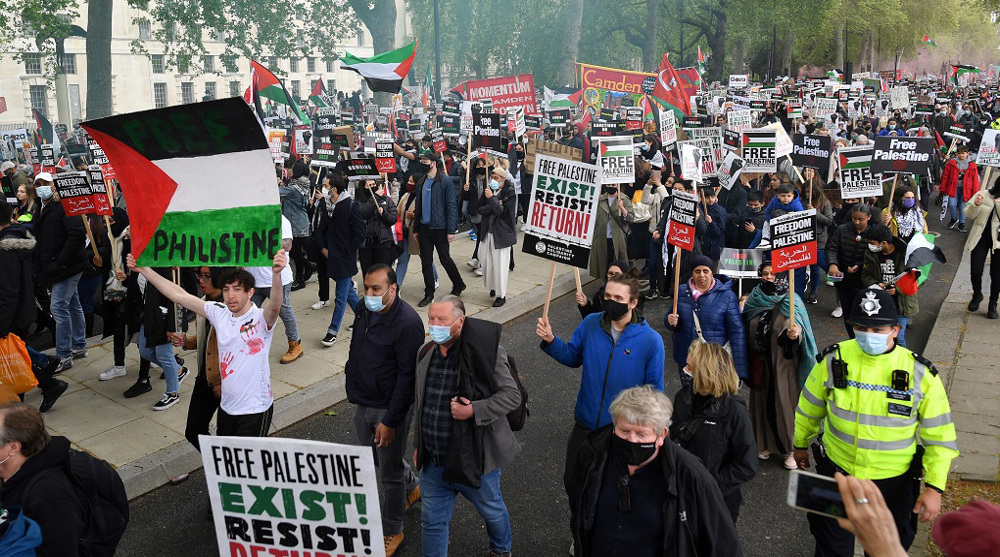
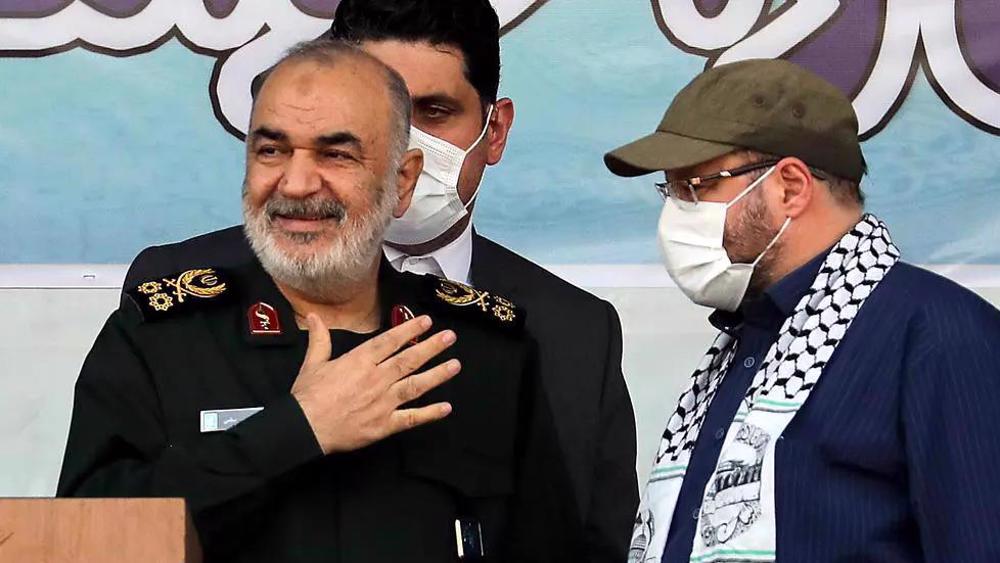
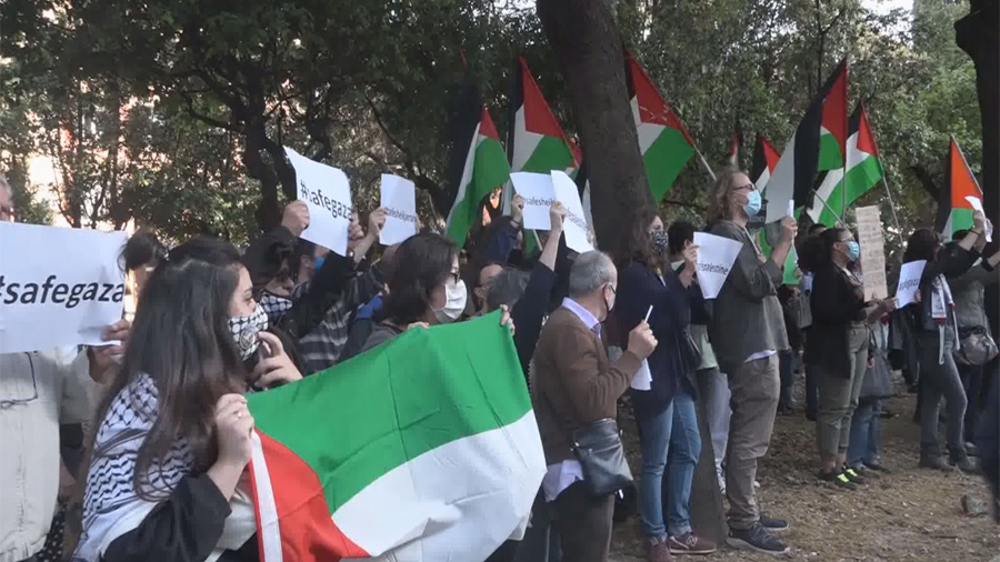
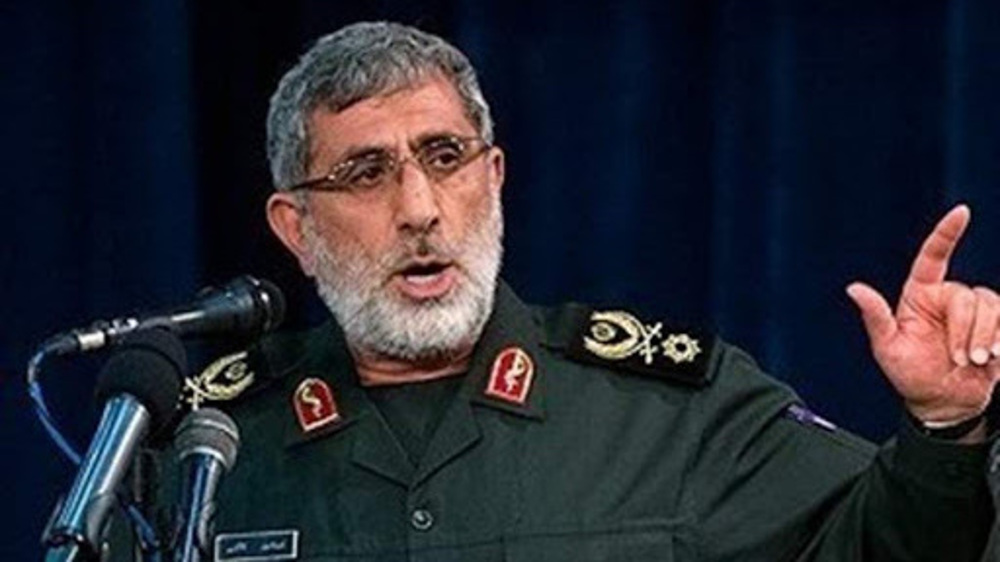
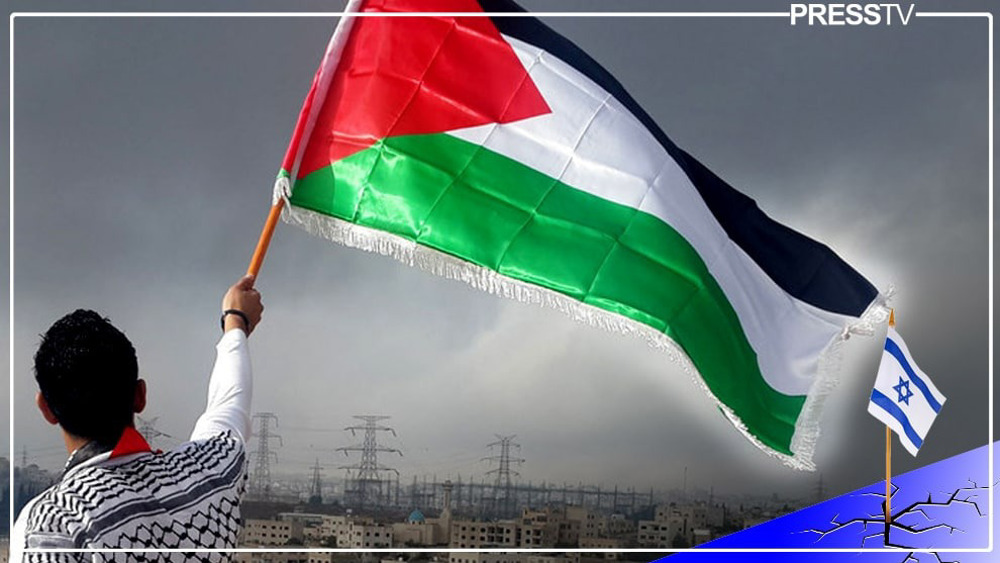
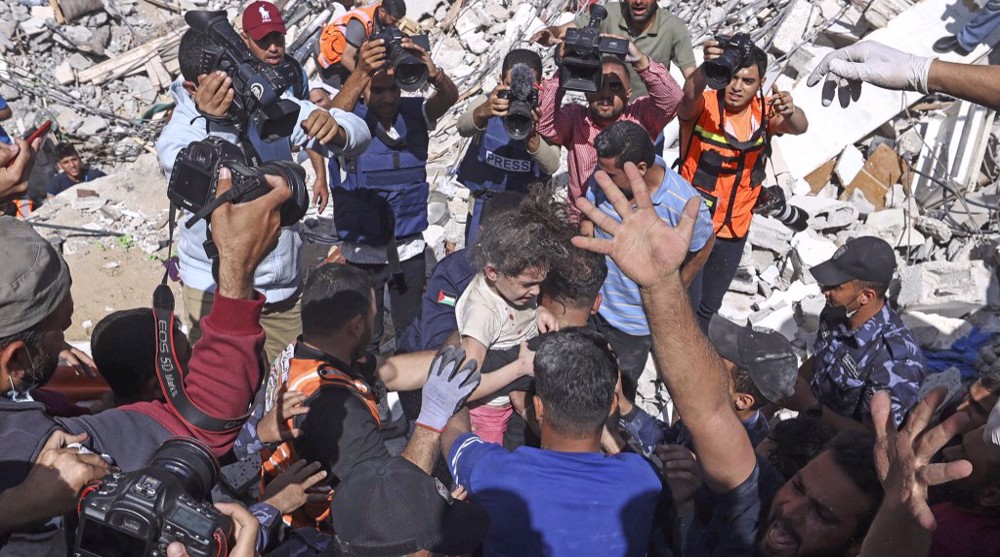
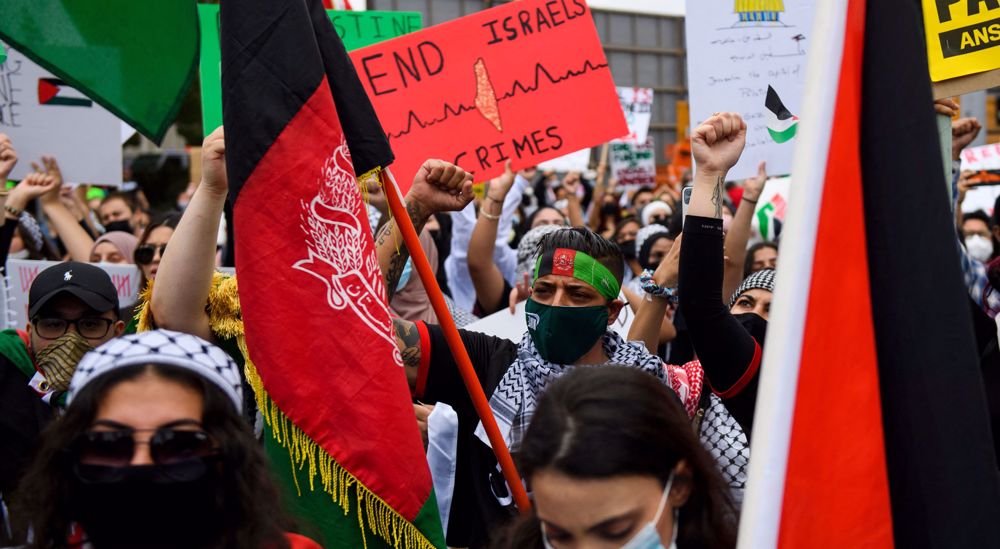
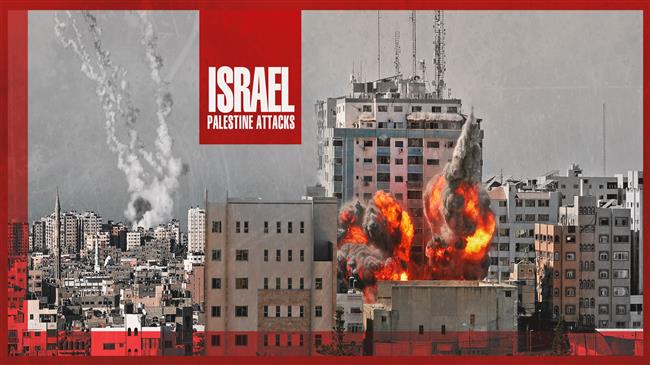
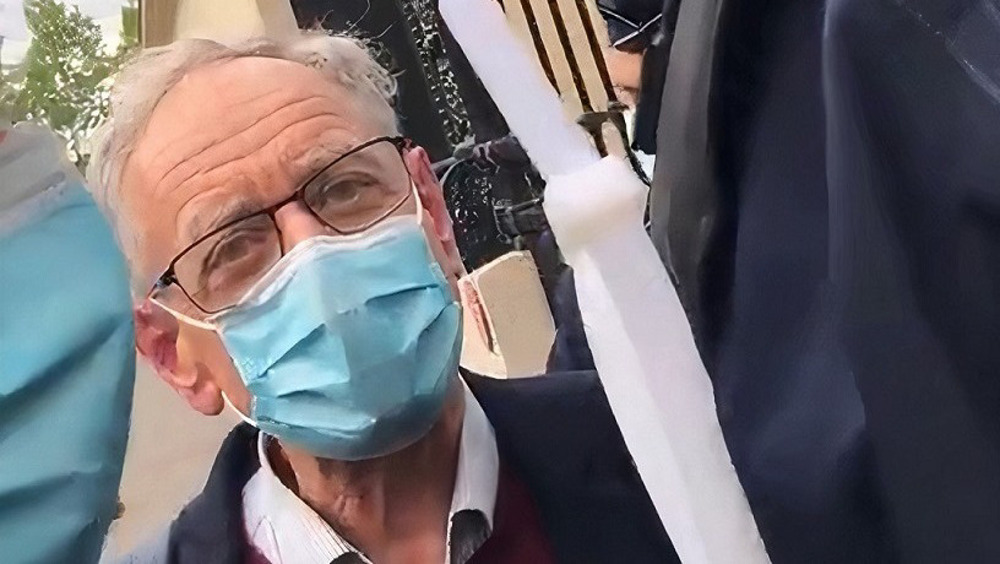


 This makes it easy to access the Press TV website
This makes it easy to access the Press TV website